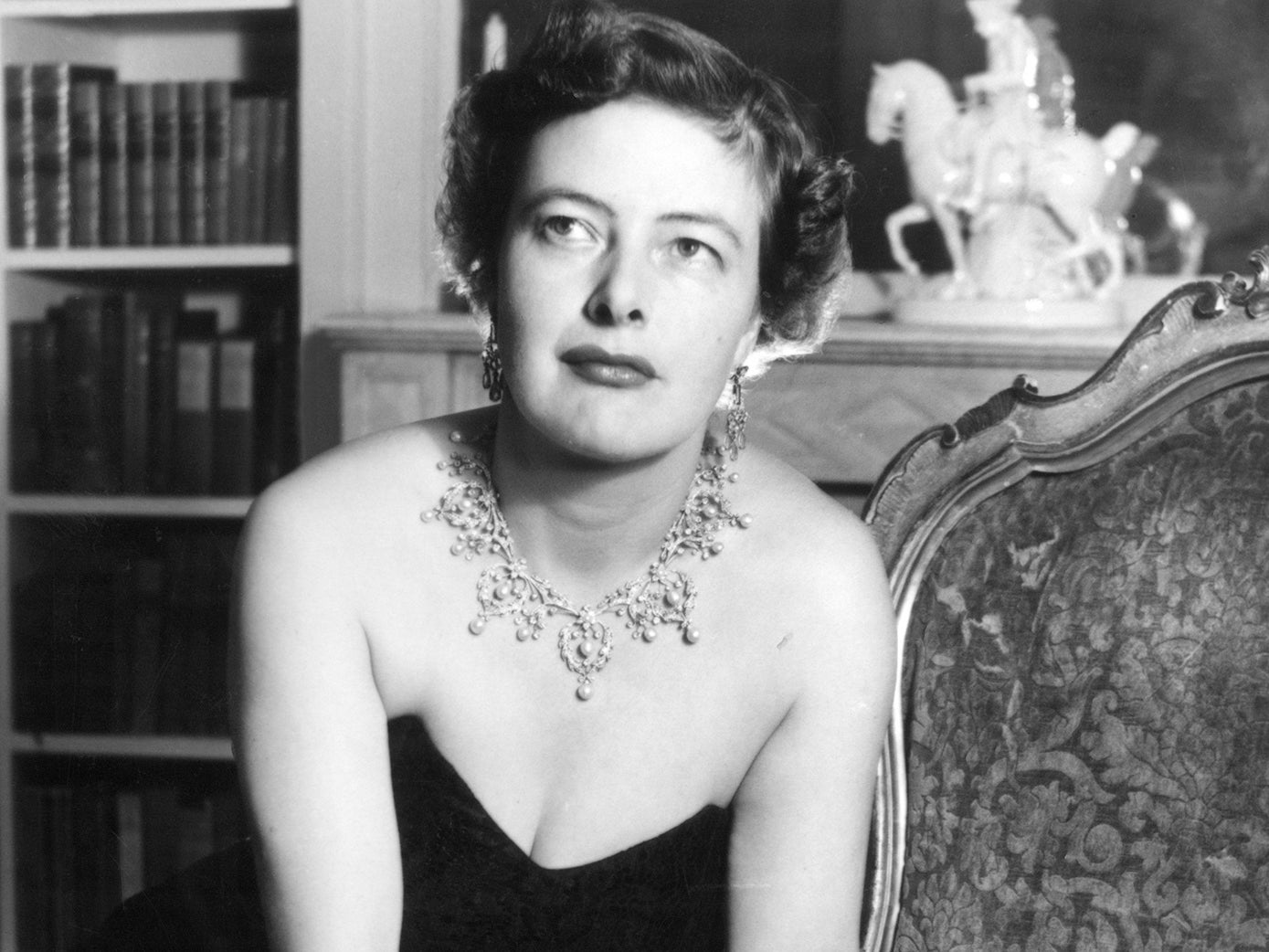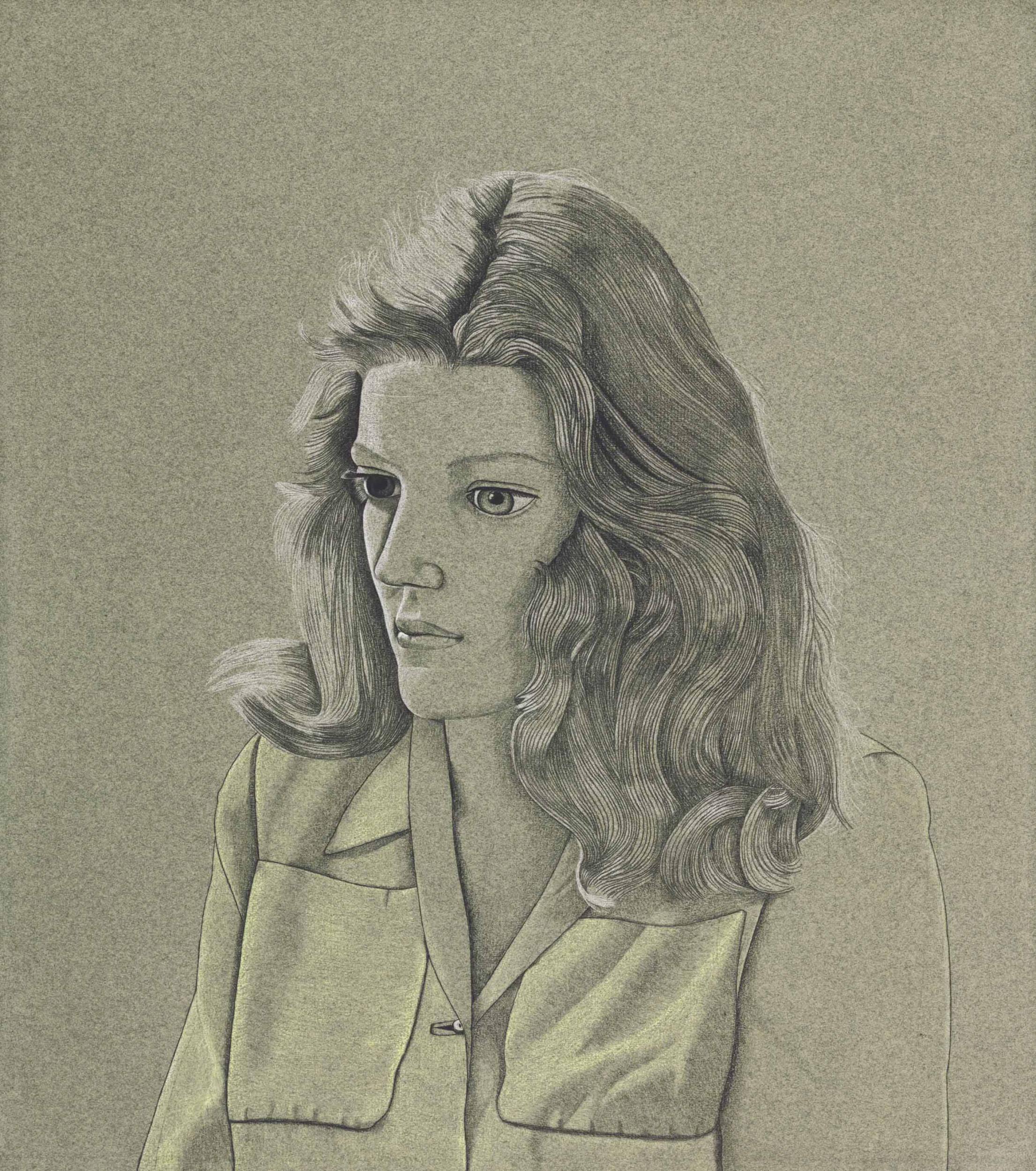A Life in Focus: Lady Rumbold, actress, poet and bohemian aristocrat
The Independent revisits the life of a notable figure. This week: Pauline Tennant, actress and poet, from Saturday 13 December 2008

Your support helps us to tell the story
From reproductive rights to climate change to Big Tech, The Independent is on the ground when the story is developing. Whether it's investigating the financials of Elon Musk's pro-Trump PAC or producing our latest documentary, 'The A Word', which shines a light on the American women fighting for reproductive rights, we know how important it is to parse out the facts from the messaging.
At such a critical moment in US history, we need reporters on the ground. Your donation allows us to keep sending journalists to speak to both sides of the story.
The Independent is trusted by Americans across the entire political spectrum. And unlike many other quality news outlets, we choose not to lock Americans out of our reporting and analysis with paywalls. We believe quality journalism should be available to everyone, paid for by those who can afford it.
Your support makes all the difference.Pauline Rumbold was a true bohemian aristocrat – a tension of qualities that were literally in her genes. She was the daughter of the Hon David Tennant, founder of Soho’s legendary Gargoyle Club and scion of a colourful titled family; and of Hermione Baddeley, British actress of youthful beauty who later appeared in Passport to Pimlico, Brighton Rock and Mary Poppins.
By the time I met Pauline Rumbold, in the mid-1980s, her own good looks had given way to a decided eccentricity. I recall being driven by her around the Salisbury ring road – a construction evidently new to her (although she had lived in the area all her life). Caught in the one-way system, she despaired with a cry of, “We’re all rats in a trap!” as she threw her hands in the air, leaving me, a non-driver, to make a grab for the momentarily unmanned steering wheel.
Michael Wishart, the artist and one of her closest friends, recalled that “the Gargoyle had been Pauline’s nursery”. In this eyrie high above Meard St, decorated with huge mirrors and murals by Matisse, Rumbold, “as beautiful as it is possible to be, was young enough to dance alone, in an irresistible scarlet dress, her blonde tresses flying,” wrote Wishart. “At 17 she had a lot of Marlowe’s Doctor Faustus by heart. Her mother ... taught me to dance the Charleston.”
Her parents, and her uncle – Stephen Tennant, an aesthete who confided in Hermione that he and Pauline shared “the fatal gift of beauty” – were at the centre of the Bright Young Things; David and Hermione were credited with the invention of the pyjama party. It is telling that Pauline was born – out of wedlock – to this glamorous couple in that tumultuous decade. Even at two years old, in 1929, she was described in a letter by her Uncle Stephen (at that moment “honeymooning” with his lover, Siegfried Sassoon, in Bavaria), as “a divine child – a combination of nursery greed and Roman Empress beauty”.
Until her parents’ divorce in 1937, Pauline spent her time between London high society and Wiltshire country life in a stone gothic pile in Teffont Magna. By that time, her father was already in love with Virginia Parsons (later Marchioness of Bath), whom he married in 1938. Pauline and Virginia would become lifelong friends – “I loved her because she loved my father” – not least because Virginia, at 15 years David’s junior, was closer in age to her stepdaughter than her new husband.
Her teenage years were spent in Wishart’s company – Michael Luke, later chronicler of the Gargoyle years – was another close friend. She was a witness to the vivid, semi-subterranean life of Soho in the Forties, with its celebrated denizens, Lucian Freud – who immortalised her in his 1945 drawing A Girl (Pauline Tennant) – and Francis Bacon, Cyril Connolly and Tambimuttu. Dylan Thomas would regularly visit Teffont Magna and spend all night drinking with her father – leaving his young wife Virginia to clear the mantelpiece of ornaments as their intoxication got wilder.

Destined to follow in her mother’s theatrical footsteps, Pauline Tennant appeared on stage in Ben Travers’ She Follows Me About (1943) and other wartime productions, including No Medals, which earned her the front cover of Theatre World in January 1945. But as well as performing for Ensa (songs she could still sing 40 years later) she made her screen début in 1945 as Vicky Calder in Great Day, a film about the members of a British Women’s Institute awaiting a visit from Eleanor Roosevelt.
Four years later she played the “young countess” in The Queen of Spades (1949), a darkly gothic confection starring Anton Walbrook and Edith Evans, with fantastical costumes designed by Oliver Messel, another friend of the family. A cult British classic, it still excites internet reviewers as: “the kind of film one savours moments from. My favourite is when the young countess, after selling her soul, begs for help and forgiveness from a painting of Mary and Jesus. The heads in the painting become black as her request is denied.”
In 1946, she married Julian Pitt-Rivers, the strikingly handsome scion of another celebrated family (his father, George Pitt-Rivers, was interned during the war for his strident fascist and eugenicist views). Julian, a cosmopolitan anthropologist, was then acting as purser to King Faisal II of Iraq; as a result, Pauline would assume a certain expertise on the politics of the Middle East. The marriage was dissolved in 1953, however, and a year later, she married Euan Douglas Graham, grandson of the 5th Duke of Montrose.
Graham was principal clerk of private bills in the House of Lords, and was said to enjoy shocking women by leaving pythons on chairs or even coiling them in their hair to resemble Medusa; no one knowing Pauline, however, could ever imagine her being perturbed by such behaviour. And her husband’s humour notwithstanding, theirs was the longest-lasting of her marriages.
After their divorce in 1970, her final marriage was to the diplomat Sir Anthony Rumbold, 10th baronet and former ambassador to Austria, in 1974. They lived, happily, at Hatch House in Tisbury, Wiltshire. Having long since given up the stage, Pauline devoted her later life to matters artistic and literary. A keen devotee of the Dorset poet William Barnes – an influence on Thomas Hardy – she published her translation of Barnes’ dialect verse in 1989. I well remember her reciting the poet’s works to me as we stood in Stinsford churchyard, close to the burial place of Hardy’s heart, and of her own husband. She also published her collected poems, Loaves and Fishes, in 1992.
Visiting her at Hatch Cottage, just outside Dorchester, was always entertaining. I was gathering information for my first book, a biography of Stephen Tennant, and she kindly supplied material, contacts and gossip, in abundance. She relished anecdotes of Uncle Stephen, whose eccentricities she retold with amused affection.
At one gathering at the Tennants’ Scottish house, Glen, Stephen had asked the Duke of Buccleuch what he’d been doing that day. “I’ve been selecting police constables,” said the duke, gruffly. “Oh, what a lovely job!” said Stephen. “That was typical Stephen,” giggled Rumbold in her husky voice.
Her own hospitality was generous, if equally erratic. The sherry decanter would be uncorked by 9am – if only because she had already been up for hours, reading in bed, on subjects on which she would later quiz her house guests. Her adoptive son, Andrew, might call in, while Wagner blasted from the sound system.
Then there was her King Charles spaniel, Roly, to be walked; followed by a visit to friends such as Eric and Wanda Newby; her cousin Julian Tennant and his wife Miranda; or the Chelsea bookseller John Sandoe, retired to Dorset. Enjoying a post-prandial orange gin at Sandoe’s house, puffing away on a Players cigarette, Pauline, Lady Rumbold, was in her element holding court, wreathed in Tennant charm as the smoke curled around her.
Pauline Laetitia Tennant, actress and poet, born 6 February 1929, died 6 December 2008
Join our commenting forum
Join thought-provoking conversations, follow other Independent readers and see their replies
Comments